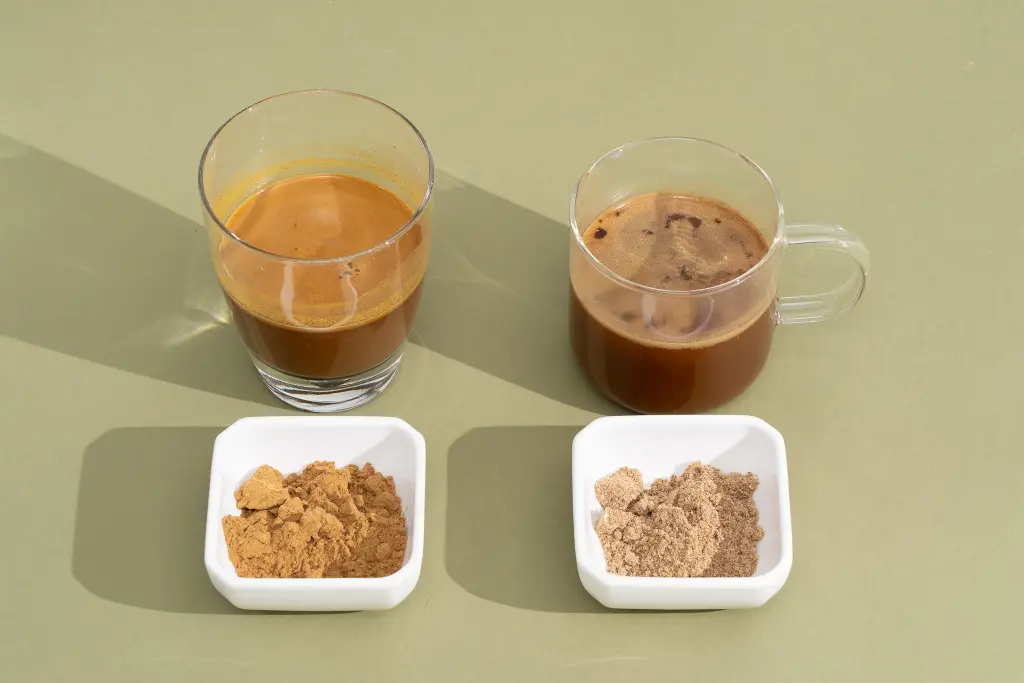Choosing between mud water and herbal tea for a daily wellness boost often comes down to personal preference and health priorities. Both beverages have built strong followings, yet they offer very different approaches to energy, relaxation, and long-term well-being.
The Benefits of Mud Water
Mud water has quickly gained attention as an alternative to coffee and energy drinks. Blended with adaptogenic mushrooms and spices, it provides a unique mix of earthy ingredients designed to support both body and mind. Popular blends often include:
- Chaga for energy and immune support
- Reishi for balance and resilience
- Cordyceps for stamina and physical performance
- Lion’s Mane for sharper focus
These are paired with masala chai for flavor, turmeric for anti-inflammatory properties, and cinnamon as an antioxidant. With only about 35 mg of caffeine per serving (far less than the 80 mg found in coffee), it delivers sustained vitality without the jitters or crash.
While scientific research into specific mud water claims remains limited, users often report improved focus and mood. Some of these perceived benefits of mud water may even be tied to the placebo effect, where simply believing in a product’s wellness value helps the body respond positively.
Herbal Tea’s Time-Tested Advantages
Herbal tea, on the other hand, brings centuries of tradition. Known for both comfort and therapeutic properties, these brews are naturally caffeine-free and can fit seamlessly into daily routines.
Key advantages include:
- Antioxidant protection, which helps safeguard cells and reduce inflammation.
- Digestive support, with varieties like ginger and peppermint, eases common stomach issues.
- Relaxation benefits, particularly chamomile and lavender, which are often used to aid restful sleep.
However, not all teas on the market are created equal. Authentic blends made from whole herbs provide the most benefits, while cheaper options with added sugars or fillers may deliver little more than flavor.
Nutrient Profiles and Mental Clarity
Comparing the two reveals sharp contrasts. Herbal teas are rich in catechins and flavonoids, compounds that support cardiovascular health and fight oxidative stress. Mud water, though less studied, is praised for its adaptogens that may protect neural health and encourage long-term cognitive clarity.
The caffeine difference also matters. Mud water’s low caffeine content makes it a steady energy source, while herbal teas offer a completely stimulant-free option. For those sensitive to caffeine or looking for an evening ritual, tea may be the more practical choice. Mud water, however, appeals to individuals seeking focus during the day without the intensity of coffee, offering balance between gentle energy and mental sharpness.
Sustainability and Lifestyle Fit
Eco-conscious consumers may also weigh sustainability. Mud water brands frequently highlight organic sourcing, reusable tins, and compostable packaging. Herbal teas vary widely depending on the producer, but many established companies also prioritize fair trade and biodegradable materials.
Both mud water and herbal tea carry unique benefits. Mud water appeals to those seeking enhanced mental clarity and a coffee alternative, while herbal tea offers timeless comfort and a broad spectrum of wellness perks. In the end, the “better” option depends on lifestyle, wellness goals, and personal taste.

